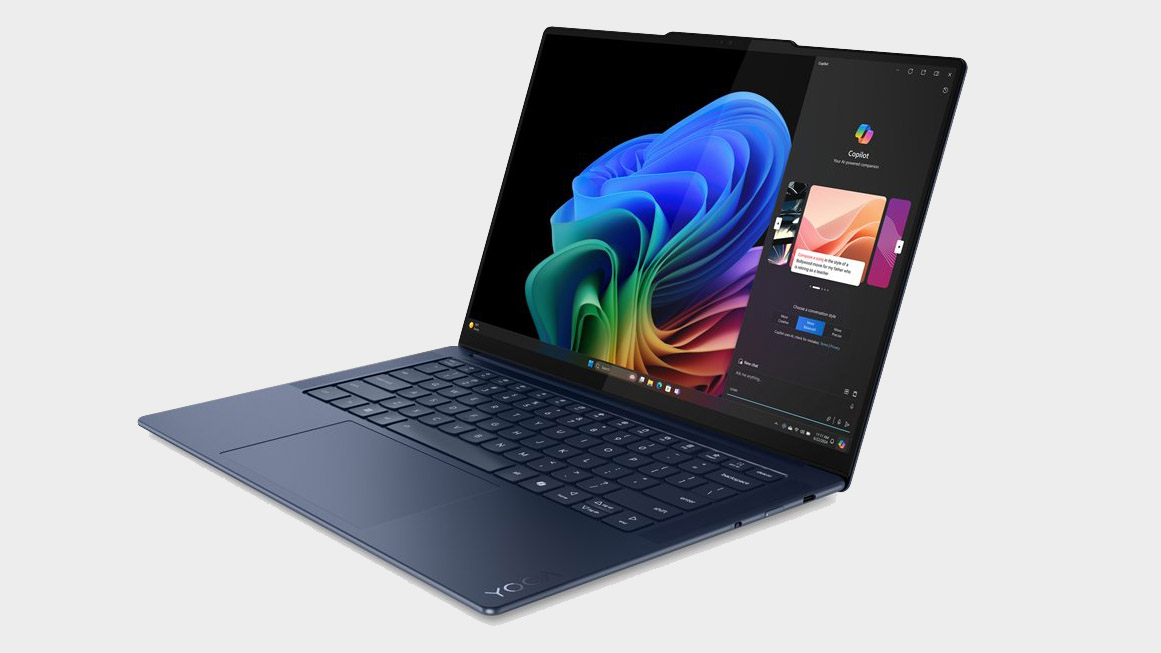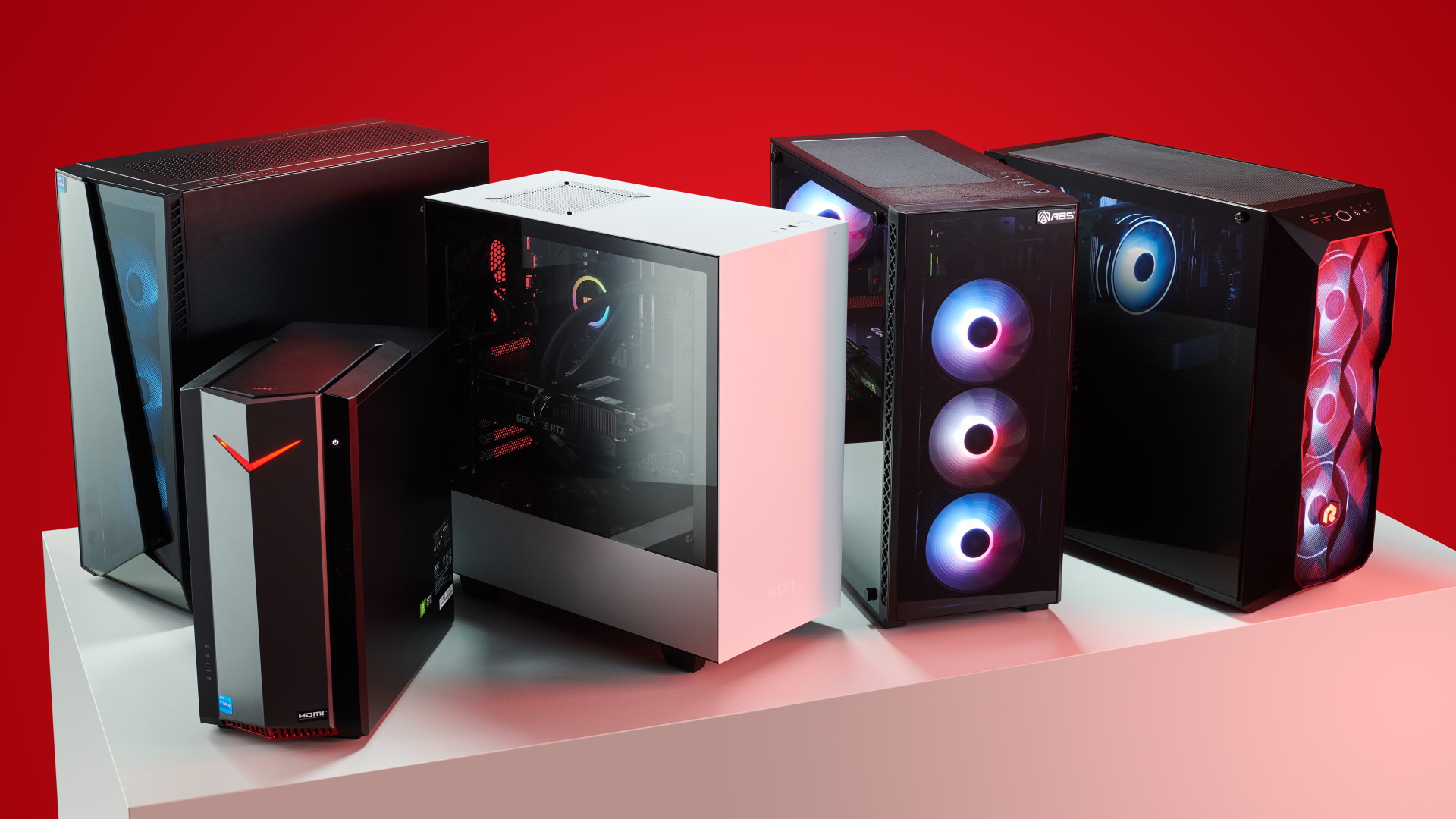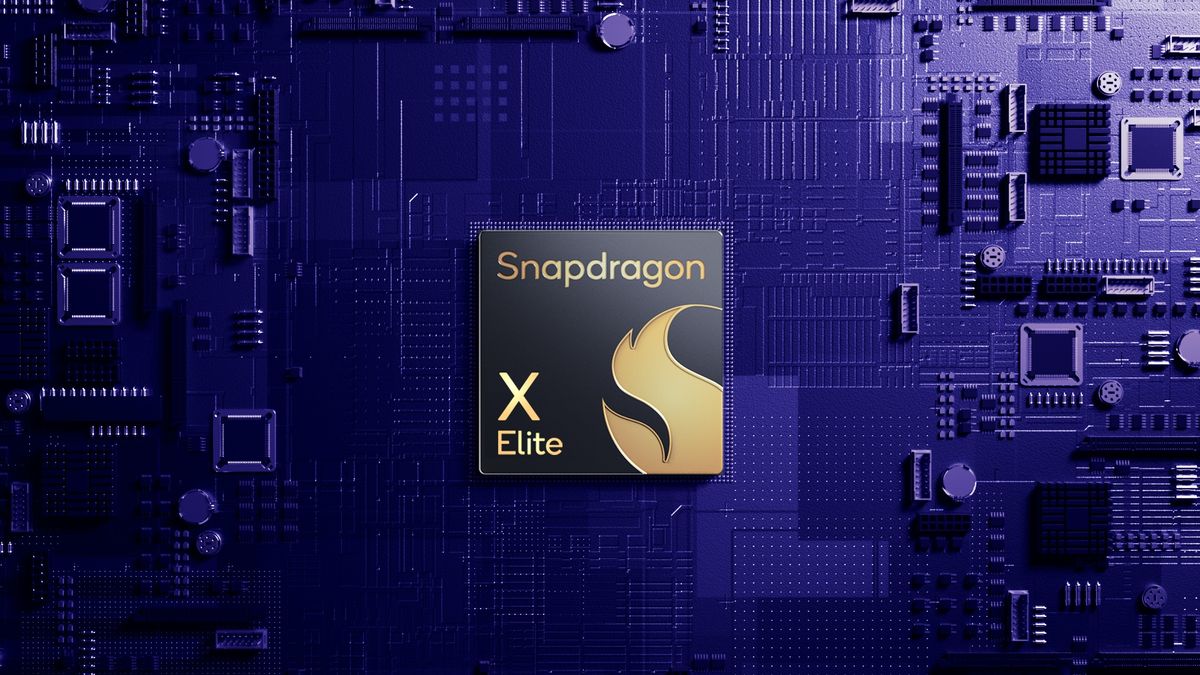
2024 is shaping up to be the year that Windows laptops with Arm processors mount a serious challenge to the dominance of the Intel and AMD x86 duopoly. We've been hearing about Qualcomm's Snapdragon X for sometime, and now the first devices are being unveiled, with more to follow at what's shaping up to be a very interesting Computex in a few weeks time.
WalkingCat over at Twitter (via Videocardz) revealed some pictures of a Lenovo Yoga Slim 7 packing a Snapdragon X processor. But, to what extent will such devices disrupt the laptop market?
Though there's not much to glean from the handful of pictures, the Yoga Slim in question looks to be a premium ultra-thin option. I would expect the first wave of Snapdragon X models to be similarly premium options, and not some budget alternative to x86 options from Intel or AMD. It's not like MacBooks are regarded as cheap options.
And Qualcomm has not just Intel and AMD, but also Apple in its sights. NotebookCheck posted a series of Qualcomm-provided benchmark data from a recent event in London that shows the Snapdragon X Elite competing well against Apple M3, Intel Meteor Lake and AMD Hawk Point CPUs.
Though the controlled benchmark results needs to be taken with a pinch of salt, a Cinebench R24 result shows the Snapdragon X Elite convincingly beating out all the competition in the multi threaded tests, scoring 1140 versus the next best AMD Ryzen 9 8945HS with 934. The Apple M3 and M3 Pro are still ahead in the single threaded test, but the Snapdragon X is ahead of the tested AMD and Intel competition in its TDP class.

Best gaming PC: The top pre-built machines.
Best gaming laptop: Great devices for mobile gaming.
Perhaps Qualcomm's real claim to fame is not just the Snapdragon X's competitive performance, but the achieving of it without sacrificing power efficiency. Qualcomm's tests show the Snapdragon X achieving between 40% to over 100% longer battery life than an Intel equivalent. Notably, it left AMD off of the battery life slide as those results would have been more competitive.
Although independent testing will be required, I believe the Snapdragon X's power efficiency will be its 'killer app'. A performance competitive premium laptop with all the goodies including WiFi 7, 5G and AI functionality that runs all Windows apps with significantly longer battery life would probably entice me to make the switch—price depending. We'll have to wait for devices to come to market before that part of the equation comes.

Is 2024 the year of the Arm laptop? There are some challenges, such as the efficiency and stability of Windows emulation across thousands of apps or how quickly a native ecosystem develops. How well an Arm CPU runs Windows games is another question that remains open. It's no quick or easy task to incorporate native Arm support, particularly given how many games are developed with consoles in mind. By and large, gaming on Arm will depend on Windows emulation for some time to come.
I've been looking forward to Arm laptops for years, and the pictured Lenovo looks good on the surface. Now, imagine what a 95W class Snapdragon could mean for the desktop in the years ahead?







